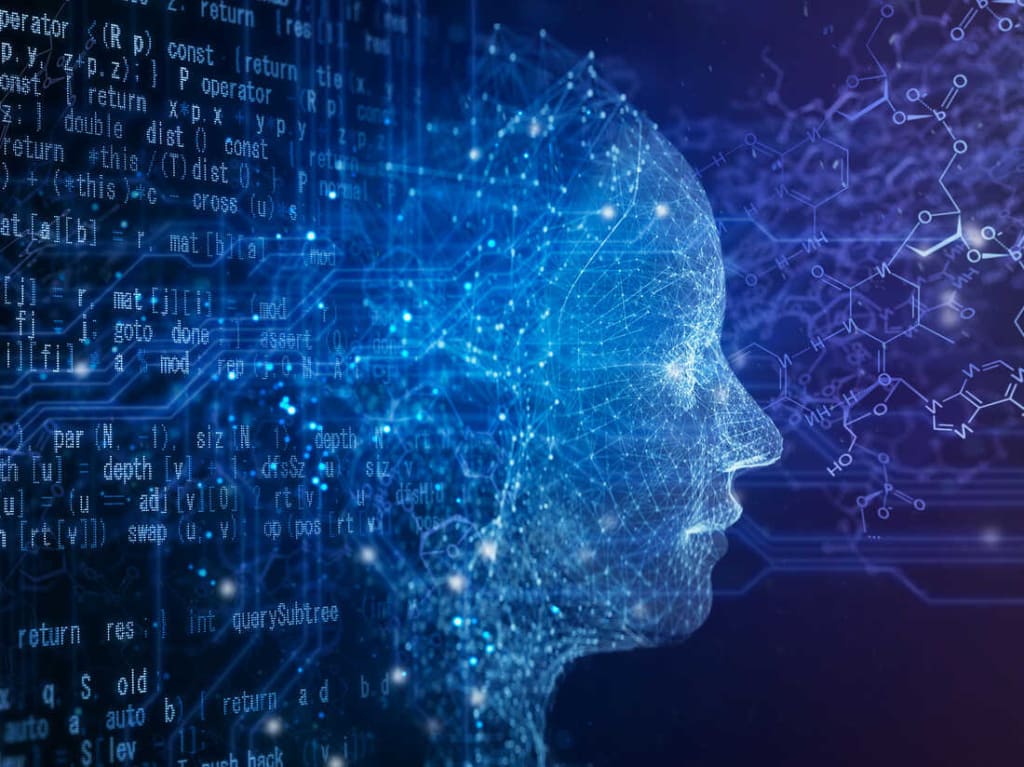The Impact of Artificial Intelligence on Various Industries
Entertaining the Future: AI's Influence on Media and Entertainment

Artificial Intelligence (AI) has emerged as a transformative force, revolutionizing various industries and reshaping the way we live and work. By simulating human intelligence in machines, AI enables tasks that previously required human cognition, leading to increased efficiency, productivity, and innovation. This article explores the profound impact of AI across diverse industries, highlighting its potential benefits and challenges.
- Healthcare Industry:
AI is revolutionizing healthcare by enhancing diagnostic accuracy, streamlining workflows, and enabling personalized treatment. Machine learning algorithms can analyze vast amounts of medical data to identify patterns and make predictions, aiding in early disease detection. AI-powered robotic surgery systems are improving precision and reducing recovery time. Virtual assistants and chatbots are enhancing patient engagement and providing 24/7 support. However, ethical concerns related to data privacy, bias, and the potential displacement of healthcare professionals need to be addressed.
- Financial Services:
The financial industry has been quick to adopt AI to automate tasks, detect fraud, and enhance customer experiences. Machine learning algorithms analyze financial data to detect patterns and anomalies, enabling more accurate risk assessment and fraud prevention. AI-powered chatbots provide personalized customer support, while robo-advisors offer automated investment advice. Nevertheless, regulatory challenges, data security, and the need for transparency remain key considerations.
- Manufacturing and Automation:
AI-powered automation is transforming the manufacturing industry, driving efficiency and improving productivity. Intelligent robots and computer vision systems enable precise quality control, while predictive maintenance minimizes downtime. AI algorithms optimize supply chain management and inventory control, reducing costs and waste. Workforce reskilling and job displacement are concerns that need to be addressed as automation accelerates.
- Retail and E-commerce:
AI is reshaping the retail landscape by enabling personalized recommendations, inventory management, and customer service. Recommendation algorithms analyze customer data to suggest relevant products, enhancing the shopping experience. Chatbots provide real-time customer support, while cashier-less stores and automated checkout systems streamline operations. However, privacy concerns and the impact on traditional brick-and-mortar stores require careful consideration.
- Transportation and Logistics:
The transportation and logistics industry benefits from AI-powered solutions for route optimization, predictive maintenance, and autonomous vehicles. Machine learning algorithms analyze traffic data to optimize delivery routes, reducing fuel consumption and improving efficiency. Self-driving vehicles offer the potential for increased safety and reduced traffic congestion. However, regulatory frameworks, liability issues, and public acceptance remain key challenges.
- Education:
AI is transforming education by personalizing learning experiences and enhancing educational outcomes. Intelligent tutoring systems provide adaptive learning paths, tailored to individual student needs. AI-powered grading systems automate assessments, providing timely feedback. Virtual reality and augmented reality technologies enable immersive learning experiences. Ethical considerations around data privacy, algorithmic bias, and the role of teachers in the AI-enabled classroom need careful deliberation.
- Agriculture:
AI is transforming the agriculture industry by optimizing crop yields, monitoring soil health, and improving overall farm efficiency. Satellite imagery and drones equipped with AI algorithms enable farmers to assess crop health, detect pests or diseases, and make data-driven decisions. AI-powered precision agriculture systems provide real-time data on water and fertilizer usage, reducing waste and increasing sustainability. However, the accessibility and affordability of AI technologies for small-scale farmers remain a challenge.
- Energy and Utilities:
AI is revolutionizing the energy sector by optimizing energy generation, improving grid management, and promoting renewable energy integration. AI algorithms analyze energy consumption patterns to optimize power distribution, reduce energy wastage, and enhance grid stability. Predictive maintenance using AI helps utilities identify equipment failures before they occur, minimizing downtime and maintenance costs. AI also plays a significant role in optimizing renewable energy sources, such as solar and wind, by predicting weather patterns and improving energy storage solutions.
- Entertainment and Media:
AI is reshaping the entertainment and media landscape by personalizing content recommendations, enhancing production processes, and creating immersive experiences. Recommendation algorithms analyze user preferences and behavior to suggest movies, music, and articles tailored to individual tastes. AI-powered content creation tools automate tasks like video editing, music composition, and scriptwriting, improving efficiency and creativity. Virtual reality and AI-driven chatbots offer interactive and immersive experiences for consumers.
- Human Resources:
AI is revolutionizing human resources by streamlining recruitment processes, improving talent management, and enhancing employee experiences. AI algorithms analyze resumes, assess candidates, and identify the best fit for specific roles, saving time and effort in the hiring process. Chatbots provide instant responses to employee inquiries, improving engagement and reducing administrative workload. AI-powered analytics enable HR professionals to identify trends, predict employee attrition, and implement targeted retention strategies.
- Construction and Engineering:
AI is transforming the construction and engineering industry by optimizing project management, improving safety, and enhancing design processes. AI algorithms analyze historical project data to predict potential risks, enabling proactive mitigation strategies. AI-powered robots and drones assist in construction site inspections, reducing human risk exposure. Generative design tools leverage AI to explore multiple design options, improving efficiency and sustainability in building projects.
- Government and Public Services:
AI is playing a crucial role in enhancing government services and public administration. Chatbots and virtual assistants provide citizen support, answer queries, and assist in navigating government procedures. AI-powered data analytics help governments in policy-making, resource allocation, and public safety planning. However, ethical considerations, such as transparency, bias, and privacy, need to be carefully addressed to maintain trust and ensure equitable access to public services.
- Sports:
AI is revolutionizing sports by providing data-driven insights, enhancing performance analysis, and improving fan engagement. AI algorithms analyze player and match data to identify patterns, predict outcomes, and optimize game strategies. Virtual reality and augmented reality technologies offer immersive experiences for sports fans, allowing them to feel closer to the action. AI-powered wearable devices provide real-time performance feedback to athletes, aiding in injury prevention and performance optimization.
- Conclusion:
The impact of artificial intelligence on various industries is extensive and continues to evolve rapidly. From healthcare to transportation, retail to education, AI is driving efficiency, innovation, and new possibilities. However, it is crucial to address the ethical implications, ensure data privacy, and mitigate potential biases. By harnessing the power of AI responsibly and in collaboration with human expertise, industries can unlock its full potential and create a future where AI augments human capabilities, improves lives, and addresses complex global challenges.
About the Creator
HEMA MALINI
"Wordsmith extraordinaire and content creator with a passion for storytelling and a commitment to delivering quality. Always striving to inform and inspire through the written word."
Enjoyed the story? Support the Creator.
Subscribe for free to receive all their stories in your feed. You could also pledge your support or give them a one-off tip, letting them know you appreciate their work.






Comments
There are no comments for this story
Be the first to respond and start the conversation.